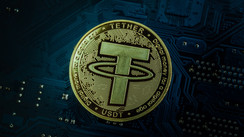The Disconnection of TrueUSD from its Dollar Peg
TrueUSD (TUSD), a prominent stablecoin, detached from its dollar peg during the early hours of June 10, following a halt in minting operations by its technological ally, Prime Trust.
At its lowest point, the fifth-largest stablecoin in terms of market capitalization traded at $0.9964. As per the data from CoinMarketCap, its current value stands at $0.9981. LedgerLens data shows that the TUSD supply is at $2.04 billion, while the collateral is slightly higher at $2.08 billion.
Announcement of Minting Pause from TrueUSD
This decoupling coincides with TrueUSD's recent disclosure that minting of TUSD via Prime Trust would be on hold indefinitely. However, minting and redemption services through other banking partners continue to operate as usual. TrueUSD assured its users in the announcement that partnerships with other banks are still solid, facilitating smooth transactions.
Over the past year, the stablecoin has regularly slipped away from its United States dollar peg.
Uncertainty Surrounding Prime Trust
It remains uncertain whether the cessation of minting activities is linked to the circulating insolvency rumors about Prime Trust. The Nevada-based fintech infrastructure provider had to let go of a third of its workforce in January. Additionally, it played the role of intermediary for Binance.US, safeguarding customer funds via banking partners during the debanking episode of crypto businesses in the United States.
The Potential Acquisition of Prime Trust
Prime Trust is likely to be acquired by crypto custodian BitGo. On June 8, an announcement stated that BitGo had signed a non-binding letter of intent to purchase Prime Trust. Should the acquisition materialize, BitGo would inherit Prime Trust's payment channels and cryptocurrency IRA fund, enabling it to broaden its wealth management offerings. The specifics of the agreement remain undisclosed.
The prospective takeover comes at a time when the U.S. Securities and Exchange Commission is contemplating rule modifications that could restrict the capacity of crypto firms to serve as custodians for their customers.




